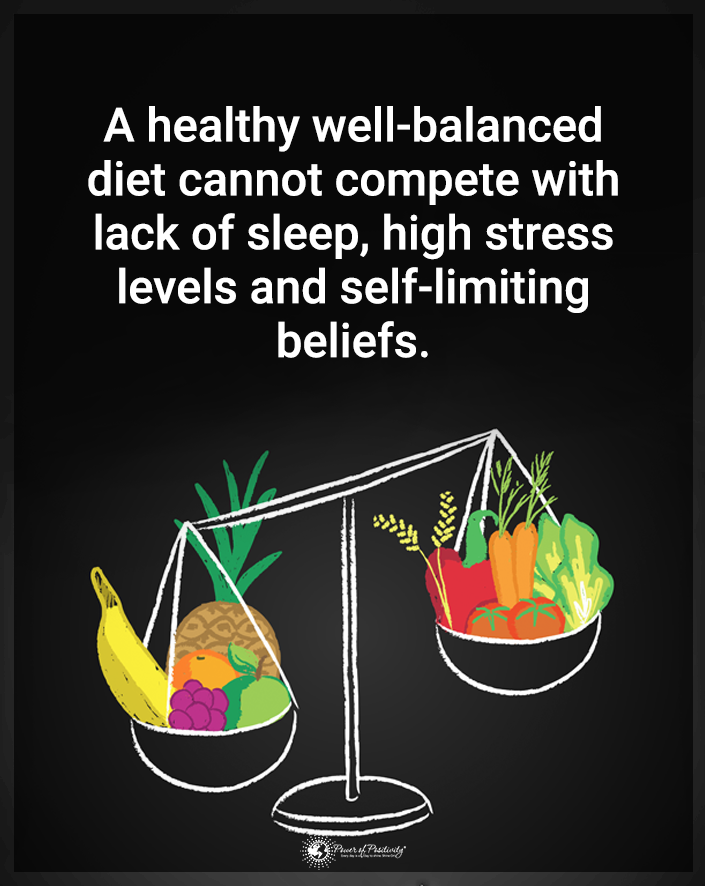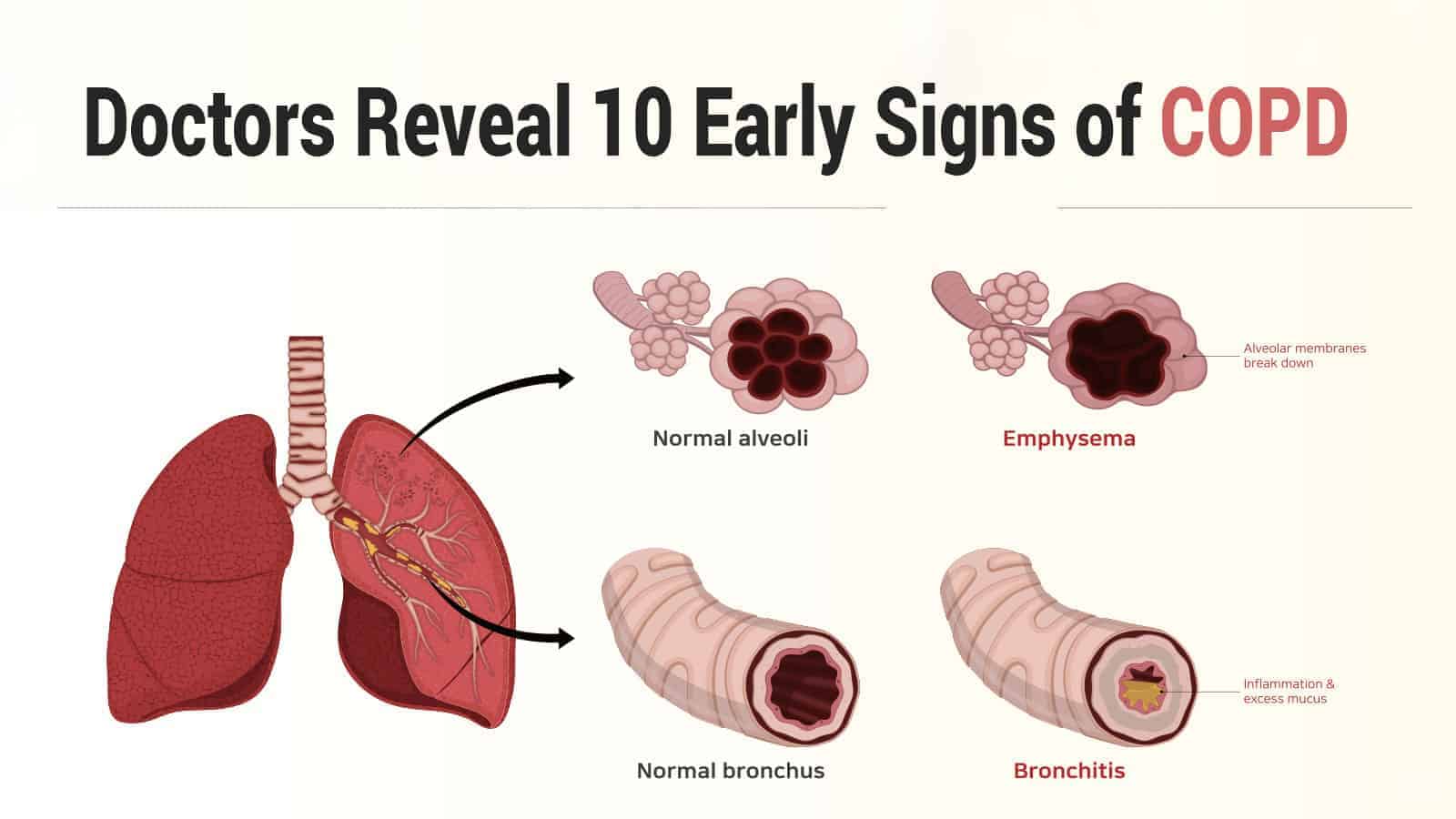Living with Chronic Obstructive Pulmonary Disease (COPD) can make you struggle to breathe, but focusing on eating healthy foods can make a difference. Improving your eating habits can help you feel better and manage your symptoms.
Improving your nutrition won’t cure COPD, but it does offer benefits like fighting off infections that sometimes lead to hospitalization. Plus, improving your nutritional health can also help you feel better overall.
Eating better to manage your COPD doesn’t have to be complicated or tedious. You can find simple ways to improve your diet and consume various foods you love.
You can eat healthier when you plan what you eat and balance your meals. With the right information, you can make healthy changes that help you improve your condition and feel better.
The Importance of Nutrition With COPD
COPD, or Chronic Obstructive Pulmonary Disease, is a group of diseases that include emphysema and chronic bronchitis. It makes breathing hard because it blocks your airways, but good nutrition can help.
When you eat, your metabolism changes food into oxygen, energy, and carbon dioxide. You exhale the waste product or carbon dioxide and use the energy on normal body processes and daily tasks.
The nutritional value of the food you eat determines how much energy you get and how much carbon dioxide gets eliminated. If you don’t have enough energy or eat nutritious things, you won’t have the energy to eliminate carbon dioxide. When this happens, and too much waste builds up, it can make you feel weak.
Carbohydrates produce more carbon dioxide for how much oxygen they use, and fats lead to the least. Those with COPD often experience breathing improvements when they consume fewer carbohydrates and increase healthy fats.
How Nutrition Affects Breathing
Breathing requires using more energy for those with COPD than for others. Their muscles sometimes use up to ten times more calories than someone without the disease.
Chest infections can be typical for people with COPD and often lead to hospitalization, but good nutrition can help fight them. Your body requires energy from food for normal functioning, including breathing and sleeping. It’s also necessary for performing daily tasks, exercising, and doing anything else.
Eating healthy won’t eliminate your need for medication, but it can boost your energy and strengthen your lungs. It’ll also help you maintain a healthy weight to prevent symptom flare-ups, complications, and difficulty breathing.
You must include a variety of foods in your diet to consume all the necessary nutrients. Consider taking a supplement if you aren’t achieving enough vitamins and nutrients. Discuss it with your doctor first, but adding vitamins to your daily routine can be helpful.
The Importance of Managing Your Weight for COPD
Consume enough calories for energy, so you don’t experience wasting or diaphragm and muscle weakening. However, don’t consume so many calories that you gain excess weight.
Being overweight causes your heart and lungs to work harder and make breathing harder. On the other hand, being underweight can make you tired and weak, increasing your risk of infection.
Symptoms of COPD include a lack of appetite, depression, and feeling unwell in general. These symptoms can lead to becoming underweight, making you weak, tired, and at a higher risk of infection.
Maintaining a healthy body weight is essential, so work with a doctor to determine a healthy weight. They can also help determine how many calories you should consume and assess other dietary necessities. Healthy eating and regular exercise can help you achieve and maintain a healthy weight.
Eight Foods to Heal COPD
Some foods can help your COPD or reduce the symptoms. These include the following:
1 – Complex Carbohydrates
Limiting your carbohydrate intake is beneficial for COPD, but you can consume some complex carbohydrates. They are often high in fiber, improving your digestive system function and blood sugar management. Complex carbohydrates include:
- whole-grain bread or pasta
- fresh fruits and vegetables
- bran
- lentils
- quinoa
- potatoes with the skin
- beans
- barley
- oats
2 – Omega-3 Fatty Acids
Experts indicate that consuming omega-3 fatty acids can help reduce lung inflammation and reduce symptoms of COPD. The benefits are likely due to the anti-inflammatory properties that help open your airways. Research shows that diets rich in this nutrient make you less likely to experience chronic cough and wheezing.
Omega-3 fatty acids also contain high-calorie levels, making them beneficial to those who have trouble eating enough. You can consume these essential fats in:
- salmon
- Atlantic mackerel
- canned light tuna
- sardines
- cod
- walnuts
- leafy green vegetables
- flaxseed
- canola oil
- eggs
3 – Foods Rich in Fiber
Fiber is essential because it helps food move through the digestive tract. It can help you avoid constipation or bloating, both of which make it hard to breathe with COPD. A fiber-rich diet also helps decrease cholesterol levels and your risk of heart disease.
If you need to increase your fiber intake, consider the following:
- legumes, including beans, peas, and lentils
- vegetables
- fruits
- whole grain cereals or pasta
- oats
- quinoa
- whole wheat bread
- brown rice
- nuts or seeds
4 – Protein Rich Foods
COPD can make it hard to eat, causing weight and muscle loss. Consuming more protein can help you maintain stronger respiratory muscles and reach your suggested calorie intake. Skipping out on the essential protein intake can worsen your breathing problems because it weakens your respiratory muscles.
When you want to increase your protein intake, consider the following:
- nuts
- dried beans
- milk
- cheese
- eggs
- fish
- meat
- poultry
5 – Hydrating Foods
Staying hydrated helps your organs function properly. It also thins mucus in your airways, which is essential for those with COPD as they often experience an overproduction of phlegm. You can get hydration from healthy, caffeine-free fluids, fruits, and vegetables.
Some of the most popular hydrating foods include:
- celery
- cucumbers
- watermelon
6 – Potassium
Potassium improves lung function, and a deficiency can cause breathing issues. Plus, some people with COPD take water pills and should increase their potassium intake. If you need to consume more potassium, you can consider consuming the following:
- oranges
- avocados
- bananas
- dark leafy greens
- potatoes
- beets
- asparagus
- tomatoes

7 – Foods with Vitamin D
Experts indicate that many of those with COPD experience vitamin D deficiency. This issue could occur because many COPD patients take steroids that disrupt vitamin D absorption. Plus, if your breathlessness makes you tired, you might spend less time outside absorbing vitamin D naturally.
Without consuming enough Vitamin D, you might experience osteoporosis. It is a common disease in those with COPD, so increasing your Vitamin D intake is essential.
Increasing your Vitamin D intake can decrease your COPD flare-ups. Taking supplements can ensure you get the suggested amount, but talk to your doctor before trying them. Food sources of vitamin D include the following:
- flounder
- salmon
- tilapia
- light tuna
- canned sardines
- egg yolks
- uncooked mushrooms
- products fortified with vitamin d, including orange juice, milk, and yogurt
- almond milk
8 – Mono- and Poly- Unsaturated Fats
These fats don’t contain cholesterol and come from plant sources like canola, safflower, and corn oil. They typically become liquid at room temperature, indicating a healthy option to add to your diet. Some of the best mono- and poly-unsaturated fats include:
- nuts and seeds
- coconut or coconut oil
- olives and olive oil
- avocados
- cheese
- fatty fish
Four Things to Avoid for Healing COPD
Now that you know what to eat to improve your COPD, it’s time to learn what to avoid.
1 – Sodium
Sodium can cause swelling and increase your blood pressure as it leads to retaining water. It’ll cause more trouble breathing, and your symptoms can worsen. Some ideas for avoiding it include:
- removing the salt from your dinner table
- Using natural herbs to flavor your food
- read ingredient labels to avoid too much sodium
- don’t add salt to your cooking, even when the recipe calls for it
2 – Not Getting Enough Fluids
Drinking water is essential to your well-being, and it’s even more important for someone with COPD. It can make mucus thinner, so you can get rid of it easier.
Consider filling a pitcher in the morning that you want to consume by the end of the day. Refill your water cup from the pitcher, so you know if you’re reaching your hydration goals.
3 – Foods That Cause Gas or Bloating
If you have COPD, avoiding foods that cause gas and bloating is essential. It can make you feel uncomfortable and worsen your symptoms. Some of the things that commonly cause bloating include:
- fried or greasy foods
- carbonated beverages
- heavily spiced foods
- brussels sprouts
- cabbage
- cauliflower
- soybeans
4 – Alcohol and Caffeine
Alcohol can interfere with necessary medications and doesn’t add nutritional value to your diet. It can also disrupt your breathing and make it hard to cough up mucus. Caffeine can also interfere with medication, so it’s best to avoid it unless your doctor says otherwise.
Final Thoughts on Foods to Eat and Things to Avoid for Healing COPD
Being mindful of what you eat can help heal COPD or ease your symptoms. Your nutrition plays a big part in how you feel and your body functions.
Consider using these tips to help plan your meals and snacks to manage symptoms and feel better. Remember that you must consume various foods to achieve your nutritional goals. You can feel good with COPD if you learn what to eat and avoid.
!function(r,u,m,b,l,e){r._Rumble=b,r[b]||(r[b]=function(){(r[b]._=r[b]._||[]).push(arguments);if(r[b]._.length==1){l=u.createElement(m),e=u.getElementsByTagName(m)[0],l.async=1,l.src=””https://rumble.com/embedJS/ug6pt””+(arguments[1].video?’.’+arguments[1].video:”)+””/?url=””+encodeURIComponent(location.href)+””&args=””+encodeURIComponent(JSON.stringify([].slice.apply(arguments))),e.parentNode.insertBefore(l,e)}})}(window,document,””script””,””Rumble””);
Rumble(“”play””,{“”video””:””v4eljz””,””div””:””rumble_v4eljz””,””autoplay””:2});
The post 8 Foods to Heal COPD (and 4 Things to Avoid) appeared first on Power of Positivity: Positive Thinking & Attitude.






